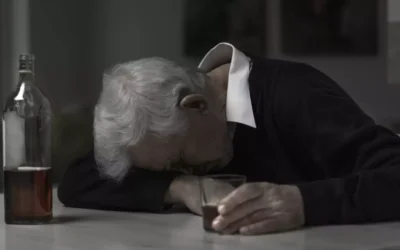Content
Alcohol impairs judgment and inhibitions, which can intensify narcissistic behaviors. Under the influence of alcohol, individuals with narcissistic tendencies may become more self-centered, arrogant, and impulsive. They may engage in reckless or attention-seeking behaviors without considering the consequences, further reinforcing their narcissistic self-perception. Boundaries are essential in developing healthy relationships; especially if the person you are interacting with is an alcoholic narcissist. If restrictions are weak, you risk compromising your own safety and losing your freedom and personal space. Many boundaries established with a narcissist are also necessary with alcoholics, however, with alcoholic narcissists some more specific restrictions often also have to be implemented.
In fact, some research suggests that alcohol misuse might be more common among people who have narcissistic tendencies. A person struggling with alcoholism can appear to dismiss friends and family to spend time with others that support their need to drink excessively. To family, it can appear that their loved one is putting these newfound friends ahead of them (similar to what a narcissist would do). Drinking when consequences are obviously damaging or will cause major losses, are both signs of severe alcohol abuse. In some cases, the person can fail to recognize how drinking is negatively affecting their life, and accuse others of being extreme. Someone who has a diagnosis of Narcissistic Personality Disorder (NPD) experiences grandiose, arrogant behavior patterns that are coupled with a lack of empathy and need to be admired.
Health Essentials
This includes not making excuses for their actions, covering up for their mistakes, or taking responsibility for their problems. Encourage them to take accountability for their actions and seek help. Through setting these boundaries, along with those specific to alcoholism, you will begin to regain control over your life and improve your relationship. With practice, setting these will become easier and, hopefully, the individual will begin to respect the rules you have established.
- Instead, they’ll keep calling and texting in the hopes of getting you to set aside your boundaries again.
- Due to its nonphysical nature, it is often difficult—or even impossible—for outsiders to see what is going on.
- You will be attacked, criticized, demeaned, and threatened with loss of something you value.
- Some people with narcissistic personalities can also be verbally or emotionally abusive.
When narcissists do not receive the admiration they crave, such as through criticism, indifference or disrespect, they exhibit significant distress. This is where the narcissist and addiction often intersect, in a place where their https://ecosoberhouse.com/article/choosing-sobriety-gifts-10-great-ideas-to-consider/ self-perception is challenged. A covert narcissist alcoholic may highlight their drinking to get attention, but will internally believe that everything is under control and therefore be unwilling to take steps to change it.
People doubt the abuse took place
Personality disorders usually start when someone is a teenager or young adult. However, alcoholism does increase narcissistic behaviors and tendencies. Even when an alcoholic doesn’t have a full diagnosis of NPD, they act in ways that are similar to a narcissist. While alcoholism is an addiction and extreme narcissism is a personality disorder, narcissists and alcoholics tend to share 11 similarities. Knowing these can help you cope with people in your life who have narcissism or alcoholism. Alcoholism is a progressive brain disease that is characterized by chemical and psychological dependence on alcohol.

Alcoholism and narcissism are two distinct psychological conditions that can significantly impact individuals and their relationships. While they are separate disorders, there can be instances where they coexist, leading to complex challenges for those affected. Similarly, people displaying narcissistic tendencies are more vulnerable to alcoholism because of the reasons explored earlier. Alcohol lowers inhibitions, making it easier for narcissists to act on their desires and impulses without feeling restrained by social norms or consequences.
How To Deal With A Narcissistic Alcoholic Husband?
How narcissists behave when they drink depends on the individual and who they’re with. Narcissists think they’re better than everyone else and even that they’re unaffected by the effects of alcohol abuse due to their inherent superiority. Another reason narcissists are at risk of becoming addicted to alcohol is that they believe they’re impervious to its negative effects. Studies suggest narcissism and alcoholism that “narcissists have higher cortisol and cardiovascular reactivity in socially threatening situations” and experience more stress. A dry drunk has stopped drinking but hasn’t yet dealt with the issues that caused their alcohol dependence. They have yet to confront the shame, guilt, or past trauma that drew them to alcohol in the first place, so are at risk of relapsing.
- Call us at American Addiction Institute to learn more about our experienced and highly credentialed staff ready to help.
- People with NPD can't change their behavior on their own and might not be able to recognize that there is a problem; they need professional help, but they rarely seek it.
- With treatment, those with NPD can live healthy lives with positive relationships.
- Let them know how you feel and your concerns about their drinking habits.
- In some cases, someone who’s misusing alcohol may display similar tendencies to narcissistic people — or at least, it might come across that way to those around them.
- Someone engaging in narcissistic abuse often has little respect for boundaries.
It’s possible for people with AUD to successfully stop using alcohol when they have the right support and treatment. A 2018 study examined the link between narcissism and alcohol use based on a survey of 345 college students. It found that narcissism was a predictor of alcohol consumption and alcohol-related problems. Narcissists will also deny that there is anything wrong with them.